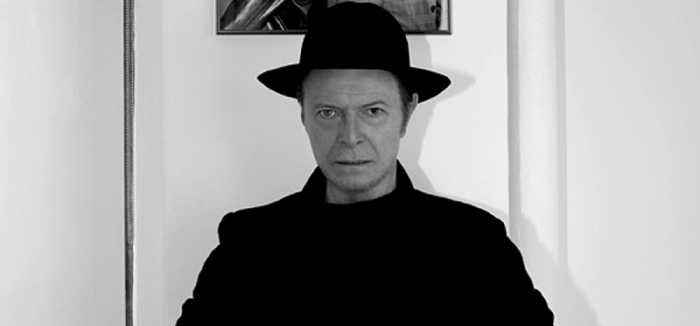DAVID BOWIE ( THE NEXT DAY)

The frenzy that ensued, on David Bowie’s 66th birthday, as it was announced that he was about to release his first studio album in ten years seemed to some at least, slightly unsettling.
Modern music dictates that at some point, select bands and artists deemed world changing pioneers, but who have also seen better days, will probably be releasing a comeback record. The long awaited return to the music scene that no one bar a diehard portion of an ageing demographic, blinded by nostalgia, will really get excited about. After all, who has ever replied with the answer “I just love the ‘Reality’ album!”
Some initial reservations dissipated upon listening to the single that accompanied the news. The unvarnished and anecdotal ‘Where Are We Now?’ exhibits fresh cracks and a depth of vulnerability to a familiar voice. Accompanied by the pleasant revelation that perhaps the man responsible for the Orwell-inspired masterpiece, ‘Diamond Dogs’ has once again, created something exquisite.
As the introductory, neo-Seventies pulse that announces the opening track ‘The Next Day’ rings out, one can almost imagine hordes of people, tentatively evacuating musical air-raid bunkers that they have frequented since 1980, cradling scratched copies of ‘Scary Monsters(And Super Creeps)’ to remind themselves of what could be about to happen. The overwhelming experience, of hearing a masterpiece for the first time. As Bowie’s defiant cry of “Here I am, not quite dying. My body left to rot in a hollow tree”, fades out, the murky cabaret that follows in the form of ‘Dirty Boys’ starts to confirm an incomprehensible suspicion. With the aid of long time producer and friend, Tony Visconti, an abundance of tales concerning world weary romance and his flair for the perpetually contemporary, David Bowie has done it.
Although a tone of reminiscence is a major contributor to the album’s subject matter, the presentation of any historical notion is conveyed by way of a profound narrative and an explorative fascination with changing times, rather than an admittance of frailty, or confessions of regret. Written from a present perspective, it seems that the references to days gone by are merely a means of explanation, cleverly divulging a string of emotions that reinforce the notion of a journey to the here and now. The album revels in a world rife with a darkly emotive, even morbid sense of foreboding, best displayed in the marching band lament of ‘You Feel So Lonely You Could Die’ where he sings a woeful tale of an estranged, tortured love and an assassin: ‘A room of bloody history, you made sure of that. I can see you as a corpse, hanging from a beam.’
Rather than an autobiographical obituary, he seems enthralled with the concept of death. Although, no doubt, a self-penned epitaph by the man who was Ziggy Stardust would be beautiful and most poetic, it isn’t the intention here.
The album in its entirety, as a complete work, demonstrates a stark contrast between brash statements of rock and roll authority and sombre acknowledgements of the depth of human suffering, predominantly at the hands of bereavement and passing of time. The diverse musical range is a testament to the eclectic back catalogue that is Bowie’s repertoire. It would be wise to remember though, that in 24 albums, it can’t all be a work of genius - the less said about Bowie’s involvement in the whole ‘Dancing In The Street’ thing the better.
Sadly, amongst the delicate, waltzing intricacies, there are occasions that despite helping to encapsulate the highs and lows of the record are dead behind the eyes. The churning, repetitive chorus of ‘ I’d Rather Be High’, an ode to a soldier reluctant to take another’s life, does nothing for the overall aesthetic and leaves the middle section of the album feeling a little disjointed. The majority of ‘Valentine’s Day’ also lacks the cinematic impact the rest of the songs accustom the listener to, but after all, this is David Bowie, and I think we can award him at least a little scope for some preachy, self-gratification.
Suggesting that this is the best work the world has seen from Bowie in the last few decades, would be an accurate observation. The wonderful poetics of the lyrics, a work of art in themselves and the vibrant, cosmopolitan soundscape really should be acknowledged as a wholly relevant piece of music, befitting of a man with such influential stature. For an artist to constantly reinvent themselves, and in the most part succeed, is an accomplishment unrivalled by any other.
Benjamin Maney